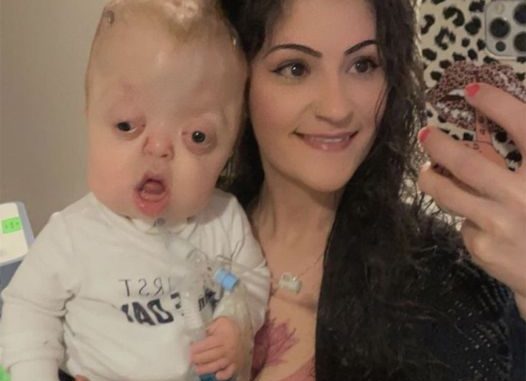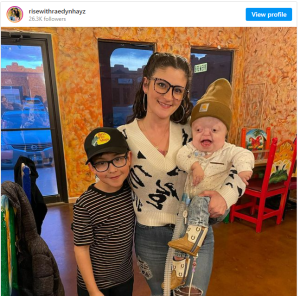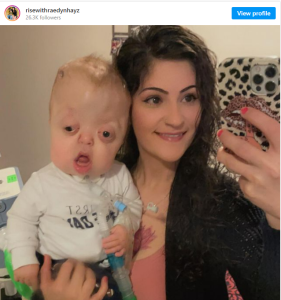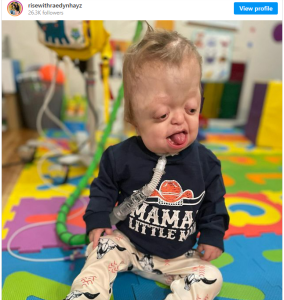
The majority of individuals use social media as their primary form of communication these days. It’s customary to send images of your children to friends and family so they can enjoy them.
Similar to other young mothers, she posts on social media, but the comments on her images and the way her child is handled are radically different. But she has some remarks to make…
Young mother Natasha is adjusting to parenting. She enjoys posting images of her one-year-old son Raedyn online, like many other new mothers do. But unlike most mothers, she experiences severe internet bullying because of the way her son looks.

On the well-known social media site TikTok, she uploads videos of herself and her son Raedyn. She also receives dozens, if not hundreds, of comments requesting that she cease uploading images or videos of her baby.
But Natasha has a message for those who dislike her., “I will not stop… just because he looks different doesn’t mean that he is any less – he is perfect,” she says.
She cannot count the amount of messages or comments she gets which read “What’s wrong with your child? Why does your child look like that?”

Raedyn, a young child, was born with Pfeiffer syndrome, which results in deformities of the limbs, face, and skull. Natasha, however, believes that her son is flawless, so whenever she gets the chance, she puts videos of him online.
However, she notes that most of the comments she receives are hurtful, typically saying things like, “What quality of life will he have?” someone rudely asked on TikTok, while another person added: “Why would you make him live like that? Such a miserable life that you’re permitting him to live”.
As if internet trolls weren’t cruel enough, Natasha also receives remarks from individuals in real life. She claims that when she is out in public, others approach her and ask her insensitive things like, “People just come up to me and rudely say: ‘what’s wrong with your child? Or why does your child look like that?’ …that’s not how you talk to a human being.”

Because of the incessant questions she will inevitably receive, she even finds it difficult to be in public. “It’s exhausting to explain my son’s health problems over and over” she shared.
Because of her son’s appearance, she finds it difficult to understand the level of interest in him. She says,“He lives a life like every other child… does he look different? Absolutely – but that doesn’t make him any less.”
Adding, “He deserves life, he deserves acceptance – I will fight until my dying day for that.”
Especially when she is going about her day and is suddenly approached by someone who is “interested” and has questions, she does not like the care people have for her.
Leave a Reply